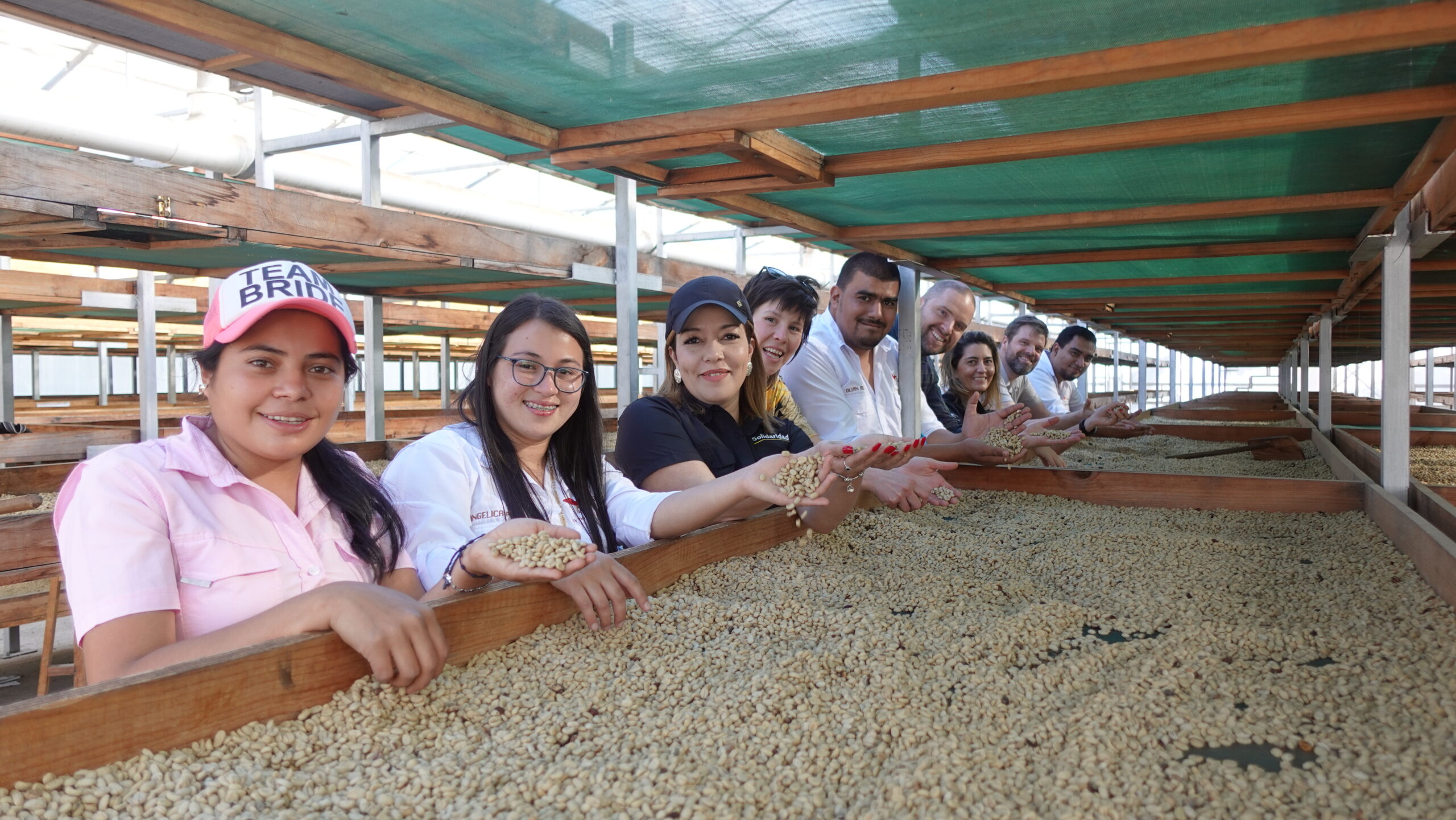Highlights
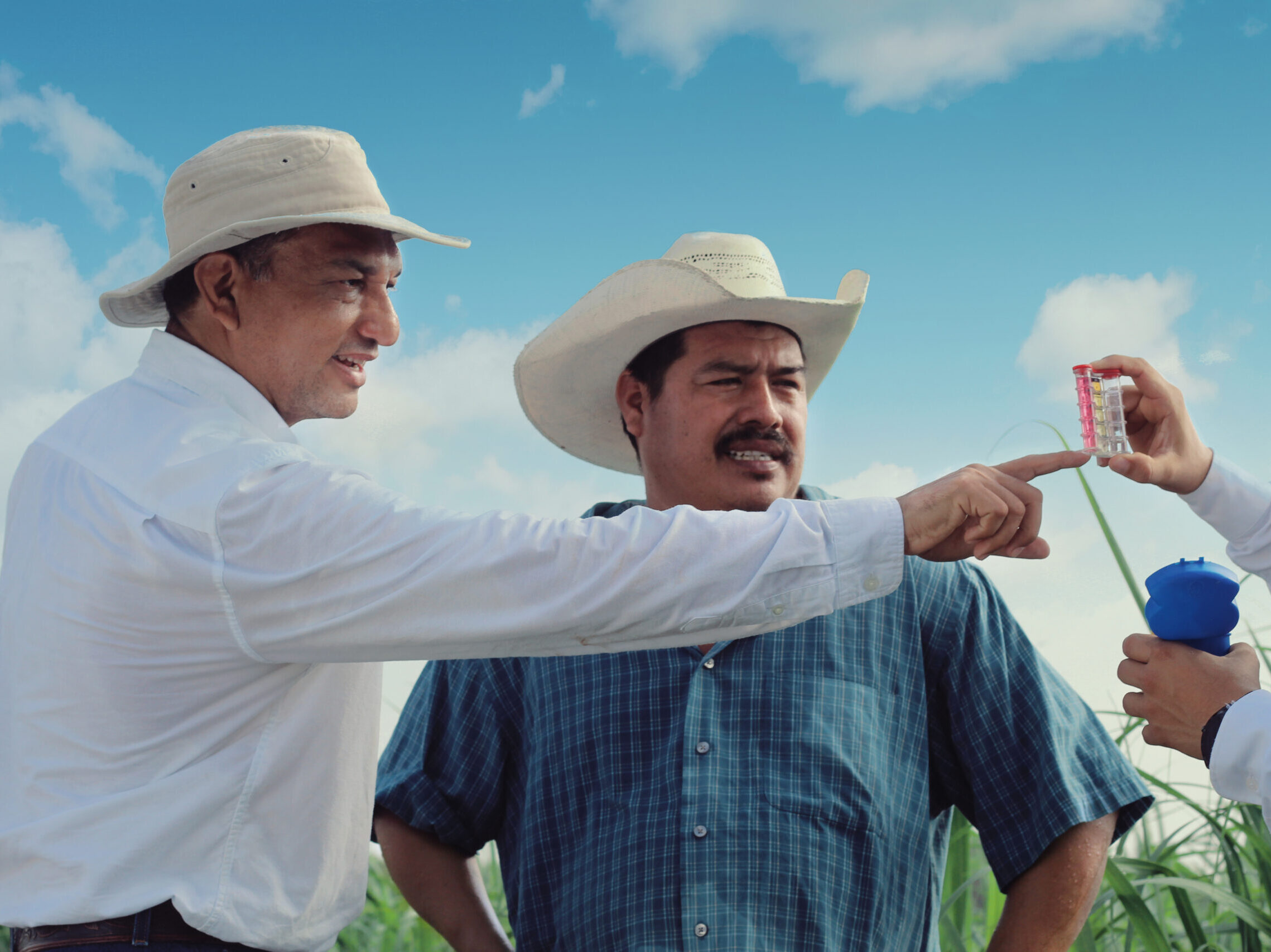
Sugarcane sustainability standards
The Bonsucro Inspire Awards 2022 recognized the Mexican MAS-CAÑA as a finalist under the category “Best initiative in the value chain” for exceptional contributions in accelerating sustainable sugarcane production. In partnership with Bayer and Grupo Pantaleon, our initiative is based on the adoption of good agricultural practices and robust training of sugarcane producers.
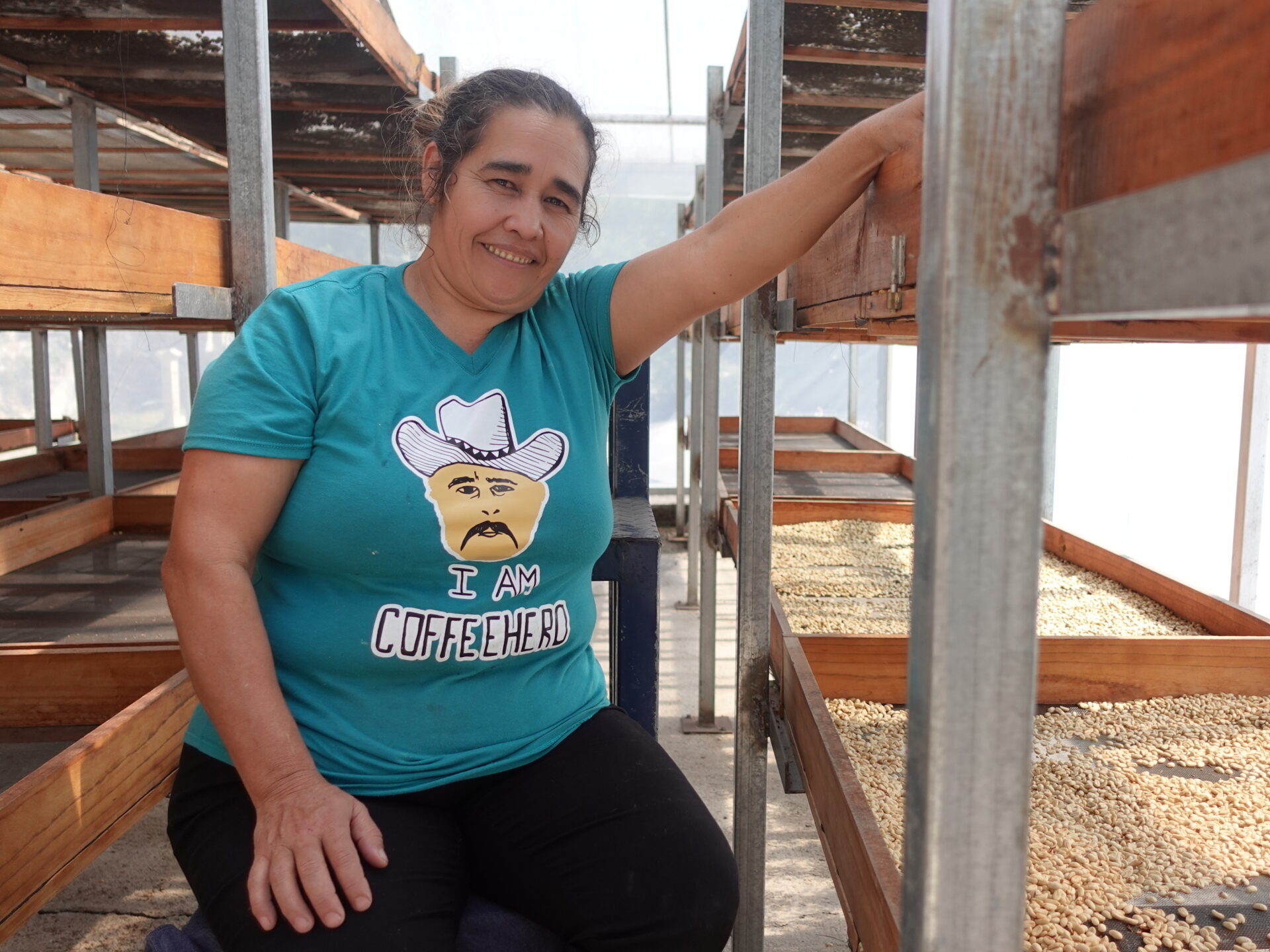
Resilient Coffee Production
We strengthened production of sustainable and traceable coffee in Mesoamerica to comply with new global market requirements. In Nicaragua 2,260 producers gained benefits from carbon markets, generating 31,786 carbon units sold at $825,000 via the ACORN platform. We’re scaling this model to Honduras, where 200 farmers sold their first container under a traceability model.
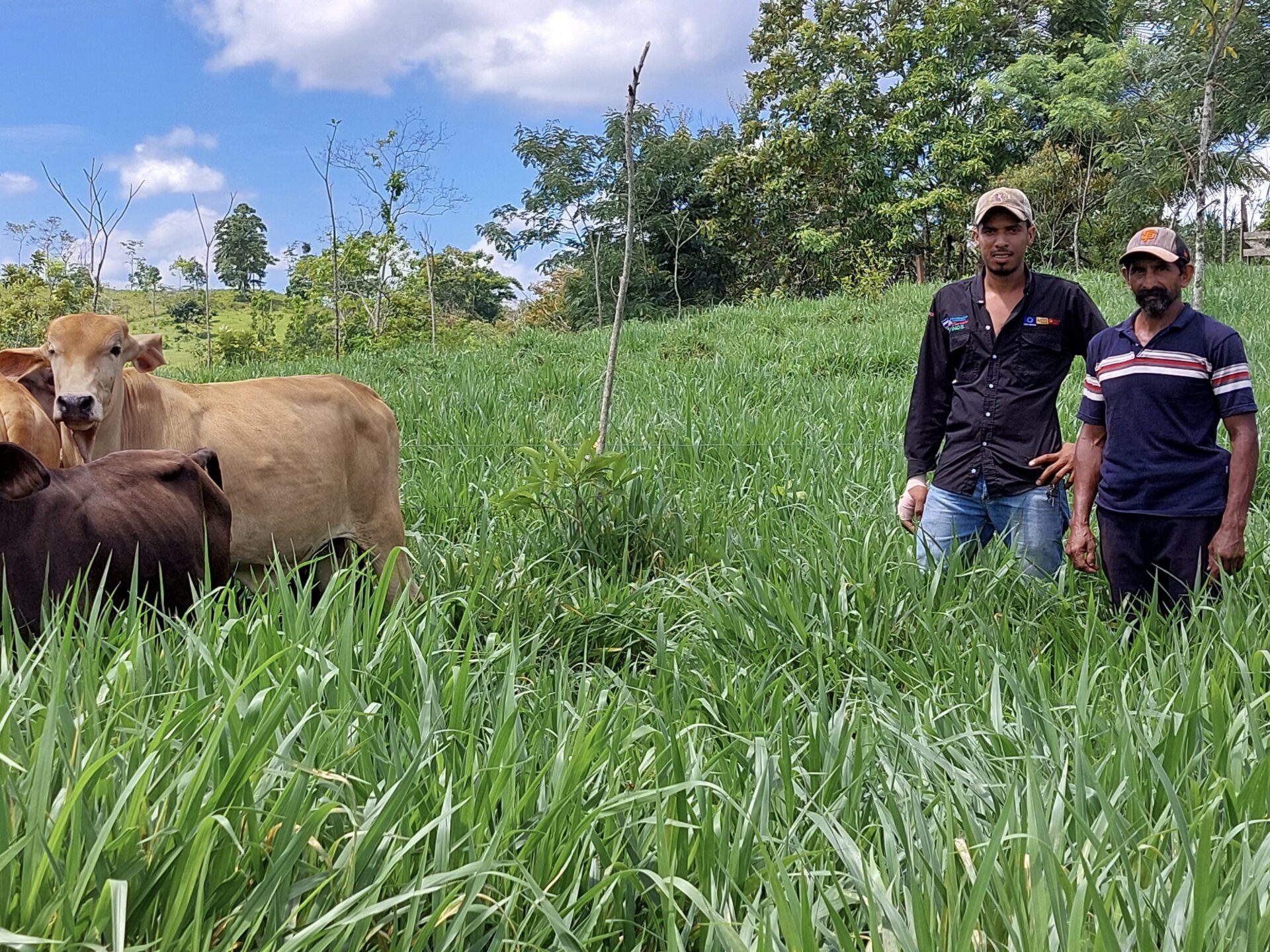
Long-term sustainability in cocoa and livestock
Since 2016, we trained 13 promoters like Santos and engaged more than 1,000 producers in Nicaragua. Beyond the end of our intervention, promoters will continue providing technical assistance as local service providers. The technical-assistance model was based on integrated farm management, which proved to have greater impact on farms and incomes.
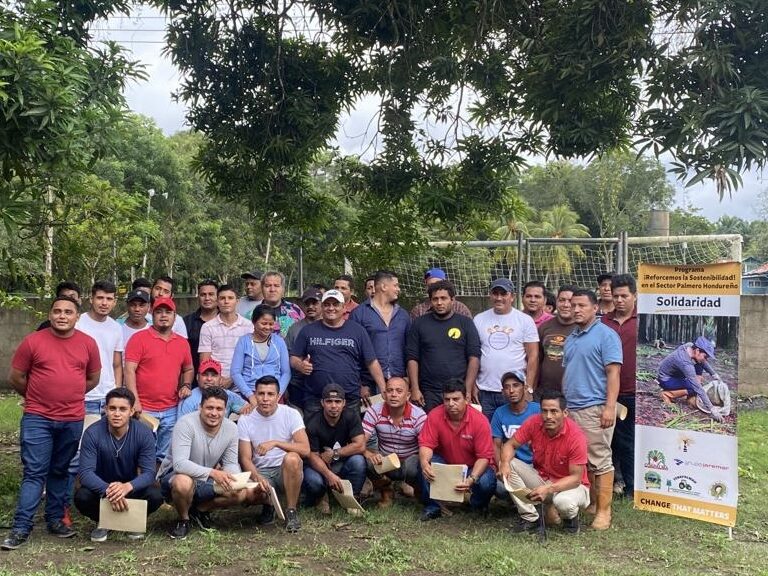
Focus on palm oil challenges
We continued to lead dialogue spaces to address zero deforestation, decent work and RSPO certification. We worked with multiple stakeholders to support the conservation of more than 69,933 hectares of Guatemalan natural reserves. We provided technical assistance to 3,592 Mexican smallholders, and we raised 2,017 Honduran workers’ awareness about decent work.
Results

77,420
workers under improved working conditions

617,872
hectares brought under sustainable management

34,614
tonne CO2 emissions reduced
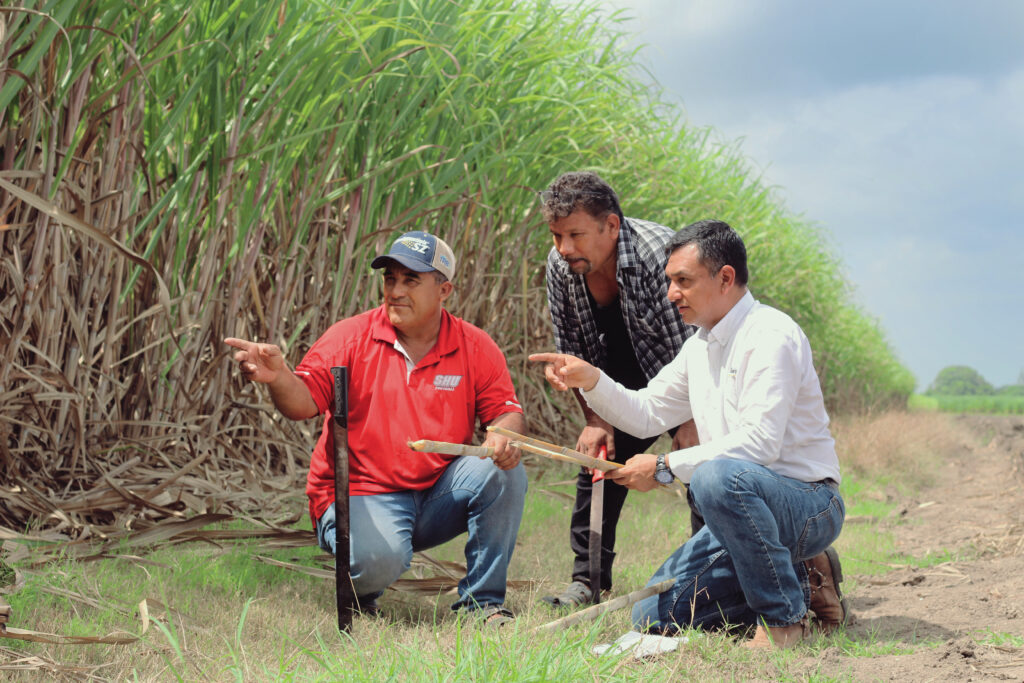
A deep dive
Results across four areas
Solidaridad implements programmes in four integrally interconnected result areas: at the farm or producer level, at the business level, at the policy level, and at the market level. All with the overall goal of building resilient communities through sustainable supply chains.
In Nicaragua, we continue strengthening the capacities of 1,088 cocoa and livestock-producing families. Producers adopted good practices in 5,185 hectares thanks to technical assistance services; improving productivity and quality, which translated to better access to markets, an increase in incomes, and a direct improvement in their livelihoods, like Jordi and his grandfather, who are producing cacao while adapting to climate change.
In Mexico, we started MAS-CAÑA II with Gupo Pantaleon’s Panuco Mill, where we established demonstration plots to strengthen sugarcane producers’ capacity through climate-smart agriculture field schools. We supported 2,607 sugarcane producers to implement good practices that achieved a 20% productivity increase. We also continued providing technical support to three Grupo Beta San Miguel mills, to close the compliance gap for Bonsucro certification, and two achieved certification.
In Mexico, we signed an agreement with Nestle to scale the climate-smart agriculture model. We validated the model with 258 Comon Yaj Noptic cooperative producers and will extend to 1,000 coffee producers to increase productivity and quality while reducing GHG emissions. Gollücke & Rothfos GmbH, a German coffee importer, sponsored 27 new young Comon Yaj Noptic farmers to implement the model. In Nicaragua, we started a baseline assessment for 260 Mercon supply chain coffee producers to transfer the model developed in Mexico. In Honduras, we signed with Matthew Algie to implement the model in their supply base and to measure their carbon footprint.
We continued to strengthen the capacities of 3,592 palm oil producers in Mexico, who trained in good agricultural practices through farmer field schools and technical assistance. Yields have increased from 15.5 to 22.5 MT fresh fruit bunches per hectare.
We partnered with Aldea Global, the largest small coffee farmers association in Nicaragua, to test a payment for ecosystem services model that onboarded 2,660 farmers to the ACORN platform. So far, these farmers have sequestered 31,786 tonnes of CO2, equivalent to 31,786 carbon units that were sold for US Dollar 800,000. The average farm has recently established shade trees and is 1.8 hectares. In Honduras, we signed an agreement to implement a pilot that will test the model with GIZ’s support.
We are also working with the government in Honduras as implementing partners of the CONECTA+ project, funded by the Global Environment Facility, which works with indigenous communities close to natural reserves, to preserve biodiversity while increasing their resilience through income diversification through ecotourism, birdwatching tourism, and marketing of coffee and cocoa tours and sub-products.
In Nicaragua, we strengthened 20 local service providers that support cocoa and livestock farmers, including a promoters network (13 individual entrepreneurs) with a strong capacity to continue providing technical assistance services beyond our intervention.
In Mexico, we trained field staff in 13 mills and producers’ associations to improve the technical assistance delivered to sugarcane producers. For this, we developed training programs, we partnered with universities to offer certificate programmes, and organized learning and experience exchanges.
Also in Mexico, we developed a study to prevent contaminants in palm oil. An evaluation was carried out in one extraction plant and small, medium and large plantations to identify possible contamination risks. The results are a handbook and a prevention and mitigation work plan. In Honduras we continued supporting palm oil smallholders in obtaining land titles, a precondition to access better opportunities and achieve RSPO certification.
In Guatemala, we continue leading the palm oil consortium to address relevant issues for the supply chain, such as zero deforestation, EU regulations, and RSPO certification. We also continue to work with government, companies, and civil society organizations to implement remediation and compensation procedures required by the RSPO standard. So far, these mechanisms have supported the conservation of 2,156 hectares of broadleaf forest, the identification of 72 hectares under restoration to establish agroforestry systems, and the conservation of more than 69,933 hectares in the Guatemalan protected areas system. In Mexico and Honduras, we continuously engage palm oil companies and civil society organizations to advance in their commitments towards zero deforestation.
We continue leading the improvement of public policies in Honduras. We are promoting the modification of the National Coffee Policy with CONACAFE, so that it will address issues related to value distribution in the supply chain, access to finance for smallholders and risk management mechanisms. We are also supporting the implementation of the coffee gender national policy, first worldwide, that was recognized as a model to be replicated by the director of the International Coffee Organization. Learn more about our gender initiatives here.
In the Honduran palm oil sector, we continue to advocate for improving the working conditions of field and factory workers. We supported three companies in improving their policies and raised 2,017 workers’ awareness on decent work to strengthen their capacities for future dialogues with employers. We also tested a digital tool to assess the companies’ performance regarding decent work compliance, as a part of our decent work model. Despite the social conflict that the sector is currently facing, efforts have been made to convene key actors to participate in the dialogue to address these issues.
In Nicaragua, Solidaridad is supporting Mercon to offer low-carbon coffee to its clients while guaranteeing quality technical assistance to its supplying farmers. Robust partners result in more resilient and stronger supply chains, which help ensure long-term supply. We began with a group of 260 farmers who are in the Mercon-illycaffé supply chain. Mercon is building the business case for low-carbon coffee. Once that is proven, we plan to further reach all supplying farmers.
Using blockchain technology through partner Fair Food’s Trace Tool, 200 farmers from CAPUCAS cooperative in Honduras sold their first coffee container that tracked economic transactions back to the producers who delivered the coffee. The buyer, Matthew Algie, paid a USD 0.40 premium per pound of traceable coffee (USD 0.18/kg). The total sales for the fully transparent coffee generated additional farmer incomes totaling USD 16,733. To comply with the new European regulations, Matthew Algie is strengthening CAPUCAS‘ supply chain through a traceability system to measure carbon footprint and deforestation-free compliance. In addition, they have provided seed capital for a revolving fund to support their infrastructure.
By supporting certification schemes such as RSPO and Bonsucro, we ensure that palm oil and sugarcane entering the market from Central America are increasingly sustainable. For example, in 2022, Guatemala produced 1.2 million tons of palm oil, 80% of which was exported. Thirty-six percent of the exports were destined for the Netherlands. Around 70% of the produced palm oil is certified under sustainability schemes, including RSPO and ISCC. This shows the competitiveness of the region in differentiated markets.
Change that Matters Stories
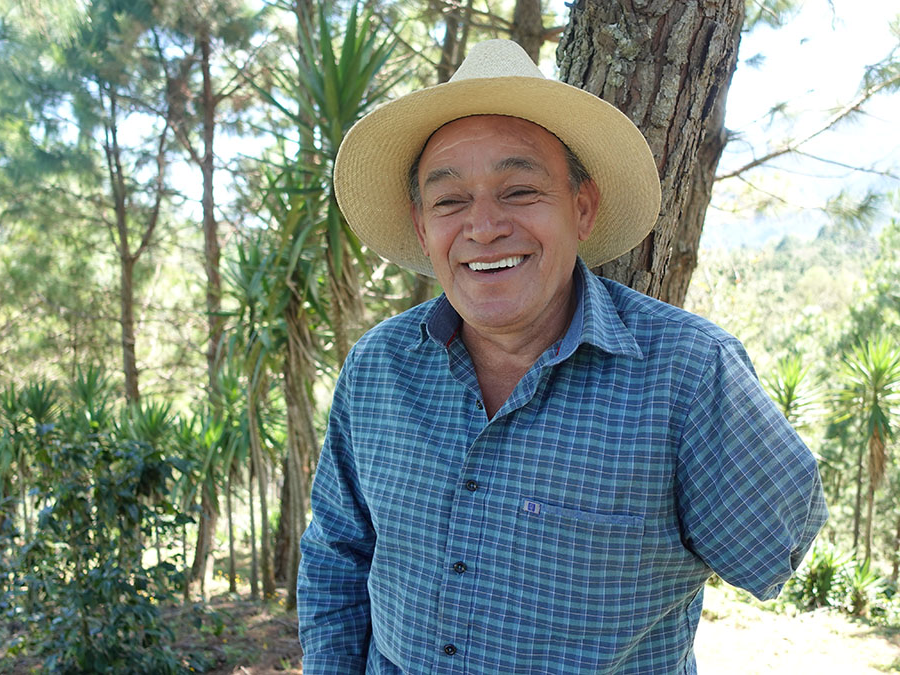
Meet Panchito: a resilient coffee farmer
Since he began farming, José Francisco Villada, better known as Panchito, has been committed to improving the quality of his coffee. Whether through his cooperative, learning with trainers or using digital tools, he works hard to learn, grow and share his knowledge with others.
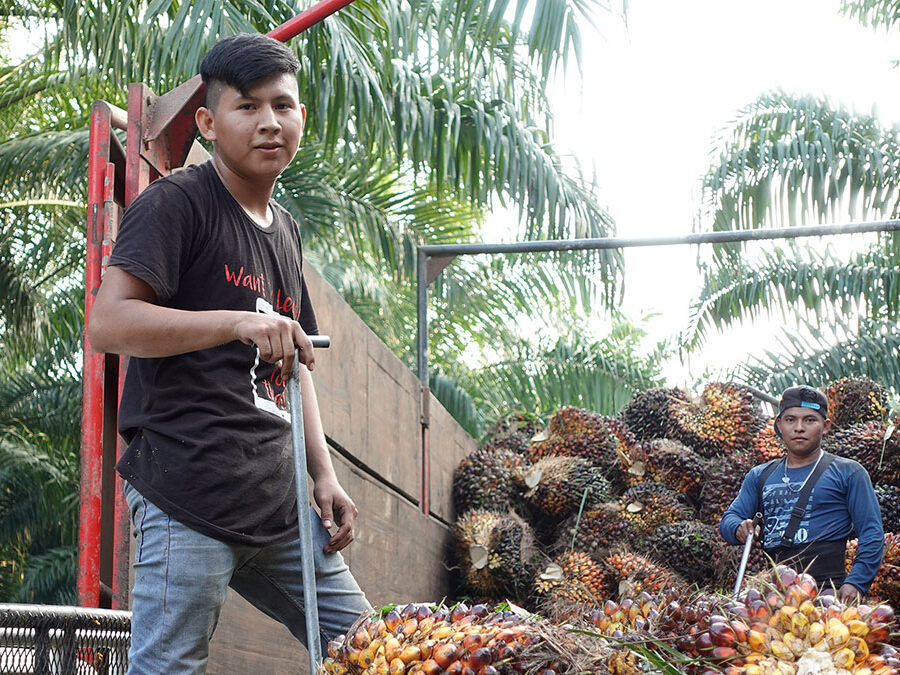
PALM OIL TRANSFORMED
Through the regional Mesoamerican Palm Oil Alliance (MAPA) initiative key supply chain actors – including smallholders, managers and owners of large-scale plantations, civil society and government – engaged through multi-stakeholder platforms to enhance sustainable agricultural, social, and environmental practices.
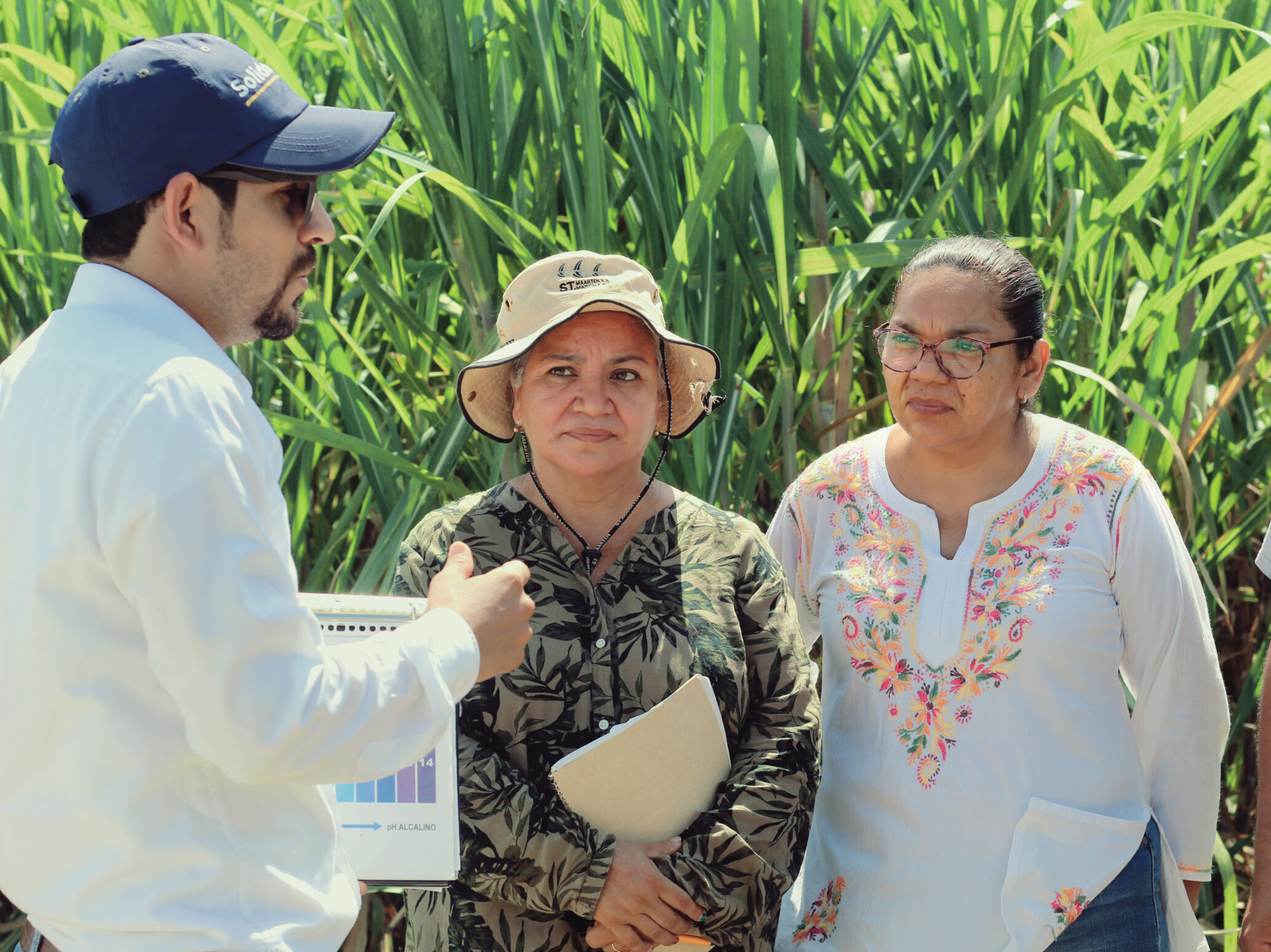
SEVEN YEARS OF IMPROVING WORKING CONDITIONS AND PRODUCTIVITY
Sugarcane is one the main crops in Mexico and Central America. That’s why Solidaridad’s regional initiative PanameriCaña has worked to build capacity to improve and increase sugarcane production, improve working conditions, and support regional certification sustainably and inclusively.
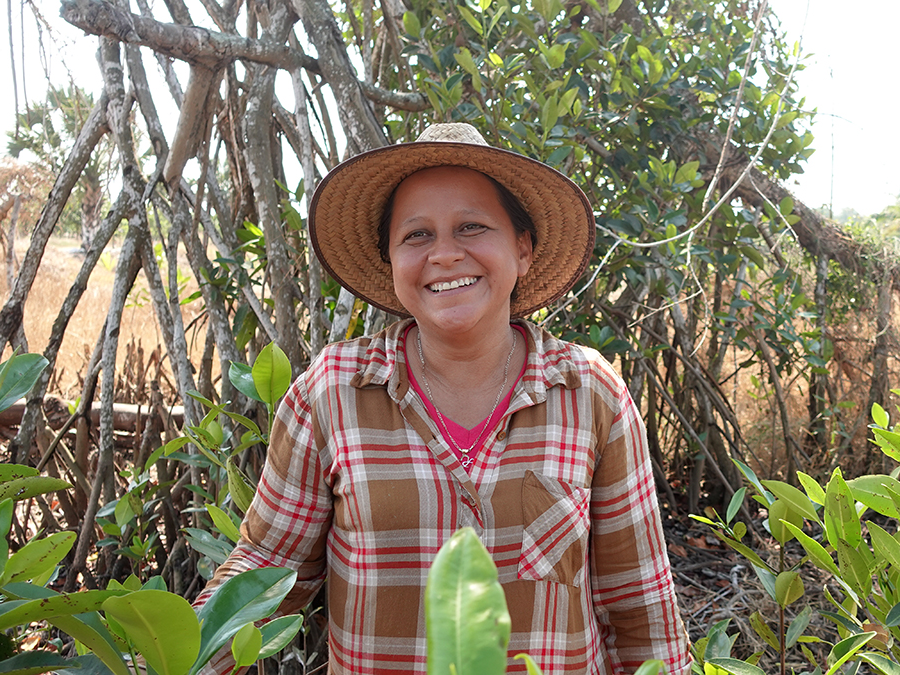
A Guatemalan Landscape Heroine
Carmen Gómez from San Marcos, Guatemala, says the greatest achievement in her community, 31 de Julio, has been gathering women, youth, and men together to work in unity in order to protect the area’s mangrove ecosystem.
Innovative Sustainability Solutions
Insights
Sustainability made easier
Innovation is the key to success for any organization and vital for growth, but for Solidaridad, it is also the only way to solve some of the imminent and persisting problems we are facing.
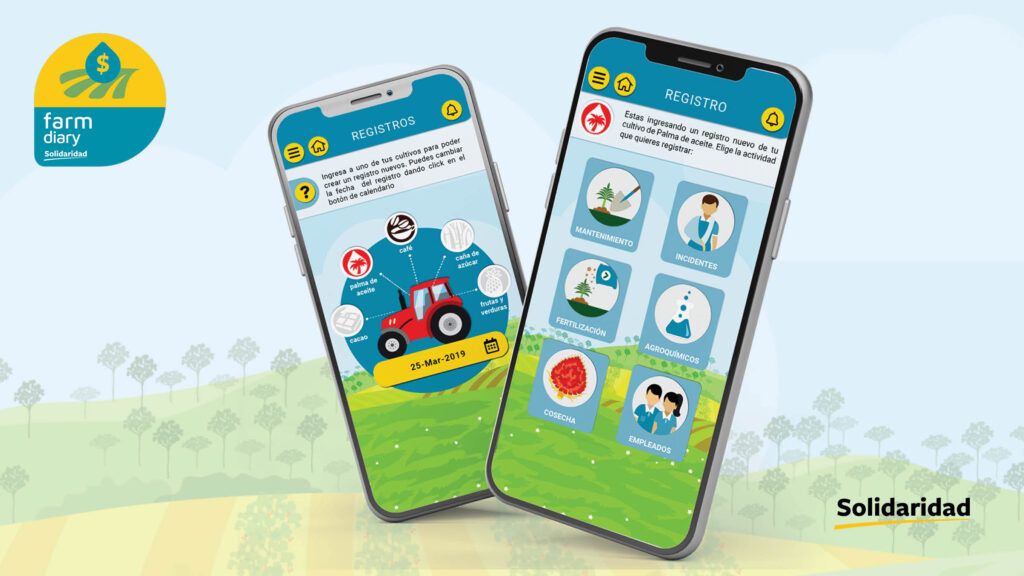
Solidaridad, in partnership with the Dutch Postcode Lottery Group and Rabobank participated in this year’s Clinton Global Initiative meeting presenting the Climate Heroes program. This program seeks to reach more than 100,000 smallholders and support them in adopting climate-smart agroforestry practices while benefiting from carbon markets. Thanks to this initiative, smallholders can become resilient and reduce the carbon footprint of food production by farming in balance with nature. The ACORN platform monitors how much carbon dioxide is removed from the atmosphere and stored in trees on smallholder farms. Companies seeking to reduce their emissions can buy carbon credits directly from producers for a fair price, for 20 years.
We connected climate-smart coffee and agroforestry producers to the voluntary carbon market through the Nicaragua Climate Heroes project with the implementation of a payment for ecosystem services model. In total, 2,660 producers with 4,760 hectares of coffee in agroforestry systems sequestered 31,786 tonnes of CO2. These were sold via the ACORN platform, generating total sales of US Dollars 825,000. 80% of this volume ($660,000) will be transferred to the farmers in 2023 as payment for environmental services. If we calculate an average this could be equivalent to what each producer would have earned for selling two additional sacks of coffee.
In 2022 we scaled our access to finance programme through PlusPlus, ending the year with more than 400 leads generated. This resulted in an accumulated total of five small and medium enterprises receiving eight investments through the PlusPlus crowdfunding platform, totaling EUR 185,000 and leading to increased sales growth, employment and incomes for smallholders, and a reduced carbon footprint.
In 2022, the region has developed a number of low-cost replicable tools that are of interest to partners and companies in the sector. A selection of these tools:
- Farm Diary: an integrated Content Management System to manage contextualization, languages and currencies. The uptake was not as expected due to increased requirements to publish the app in virtual stores. Deployment was delayed due to this to avoid losing users. The tool is now available for iOS and Android
- Coffee Quality Tool: deployment of desktop app version 2.0 that allows cooperatives and companies to keep digital records of the coffee quality and use them to provide technical recommendations for improvement and support for selling logistics. Complete for scaling.
- Socioeconomic and productive profiling tools: 26 digital surveys have been developed and used to collect socioeconomic and productive data of nearly 8.500 sugarcane, cocoa, coffee and oil palm farmers. The data collected is used as a baseline and to define activities, support technical assistance and provide profile reports to partners.
- Fair labor evaluation system: a digital survey/scoring system was developed to measure the compliance levels of companies working with Syngenta for Honduras and Guatemala.
- Decent work app: We developed a mobile application and a dashboard to provide results related to decent work conditions and recommendations for improvement.
- Technical assistance follow up surveys: Nicaragua keeps technical assistance records for over 700 livestock, palm and coffee farmers. This allows them to visualize field officers’ performance, provide personalized recommendations to farmers and plan collective activities.
- ACORN profiling system: we developed a digital survey to collect the field data required by ACORN.
- JUNGLA 2.0: Mesoamerica’s integrated management system administrative components were improved to allow a better user experience for staff. The components improved are: time-off request app (log vacations, personal days, etc), and attendance list app (keep record of farmers’ assistance to the activities led.
Case study: “Landscale, assessing sustainability for everyone in the landscape”
There are several sustainability schemes that specifically address the production or transformation units of a product, however, measuring the impacts of those efforts outside these units is complex. This is why a global consortium became interested in finding a mechanism to measure and communicate sustainability performance at landscape scale under four pillars: ecosystems, human well-being, governance, and productivity. You can learn more about it through the story of Carmen, a landscape and community leader.
Business Case: Palm Oil Regenerative Agriculture
The oil palm model on regenerative agriculture was designed by Solidaridad to evaluate the level of implementation by small, medium and large farmers in Mexico. Based on the study, smallholders are applying at least six of the set of 34 of regenerative agriculture practices fostering to reach 24% of profits with average prices of 140 USD/MT FFB/ha and yields with 20 MT FFB /ha.
Organization & Governance
Integrating operations
A single Latin American office for Central and South America
In 2022 we took the first steps to integrate the operations of the Central America and South America regional offices into a single Latin American office. This entailed the restructuring of our staff and our operations as of 2023. Both regions will continue with their strategies outlined in their respective multi-annual strategic plan (MASP III), and we will work on an integrated strategy from the 2026 plan onward.
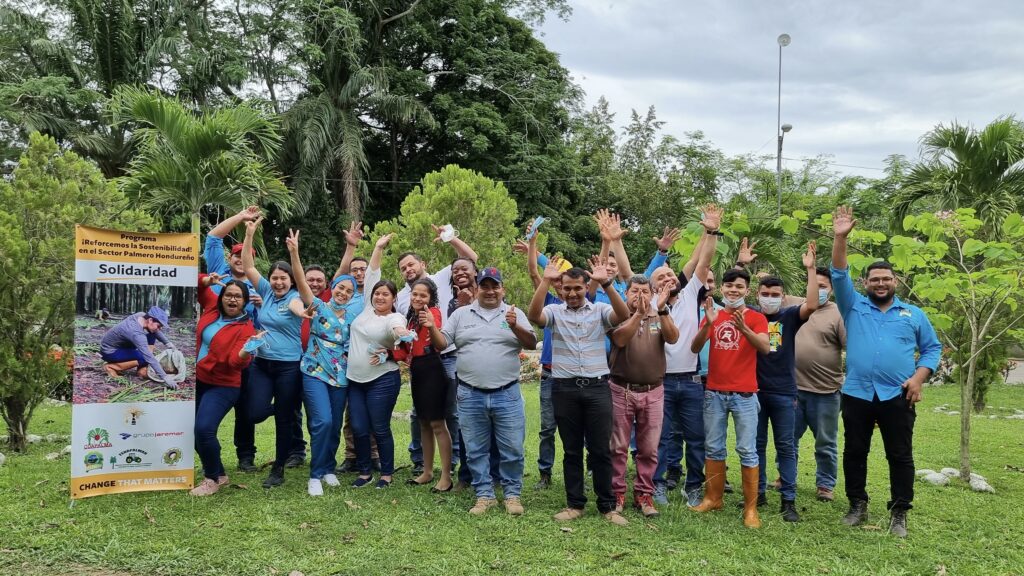
Central America employed 42 staff members at the end of 2022. This year, staff numbers remained consistent, ensuring our knowledge and expertise in the projects across the region. We are very proud that women made up 48% of our staff, 8 of which were in managerial and decision-making positions.

All staff contributed to a participatory review of their job description, which served to have a better understanding of the roles and responsibilities of each team member. We have reinforced collaboration and virtual skills for our staff, and we have also supported them in the transition from the integration of the Central and South American offices towards a single Latin American office.
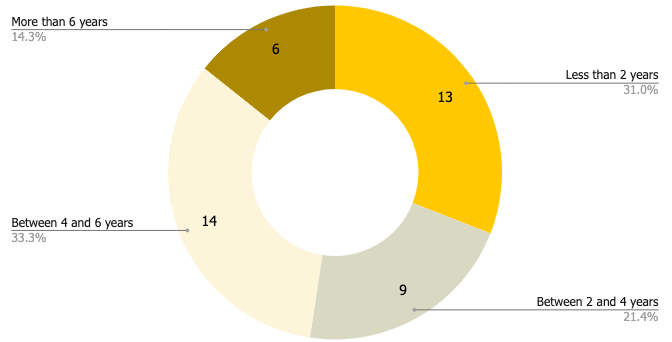
We see a good spread in the region in years with Solidaridad with a balance between experienced staff and new staff.
Communications continued to strengthen brand visibility through various products, including infographics, news, stories, reports and videos shared on organizational channels. Solidaridad’s Latin American website and social media channels increased by 17,734 new users/followers; with an increase of 30% for the website, 25% for Facebook and 109% for LinkedIn. The content created for Spanish speaking audiences in 2022 reached 6.79 million people on Facebook, 13.93 million on LinkedIn and more than 230,000 on the recently created Instagram account. Our audience includes key partners who often shared our materials.
This year, we participated in, or facilitated, 60 webinars, conferences, workshops and working groups to increase market awareness on Solidaridad programmes, initiatives, mission and vision. We engaged with 6,660 women and men, including farmers, workers, field technicians, students and researchers, as well as representatives from public and social enterprises, civil society organizations, and local and regional governments. These audiences learned about and discussed topics such as inclusivity, biodiversity and ecosystem services, digital tools, climate-smart practices and carbon markets, sustainable landscapes, continuous improvement and certifications, among others.
Together with the European office, the communications team supported fundraising efforts in a campaign following the effects of hurricane Julia in Nicaragua. The hurricane destroyed the cocoa plantations and processing plants supported by Solidaridad since 2016, and the campaign raised more than $50,000.
For the second consecutive year, we led the communication efforts for Solidaridad Network during COP27. Staff from Central America accompanied the Guatemalan and Honduran government delegations and participated in the negotiation roundtables with government representatives, partners and civil society organizations to discuss agroforestry solutions, the first smallholders’ pilot with coffee producers in Honduras together with Rabobank, and regional cooperation strategies between Honduras, El Salvador and Guatemala to tackle climate change. Communication supported the development and dissemination of the organizational statement on climate finance, position papers and news pieces for a global audience, both English and Spanish speakers.
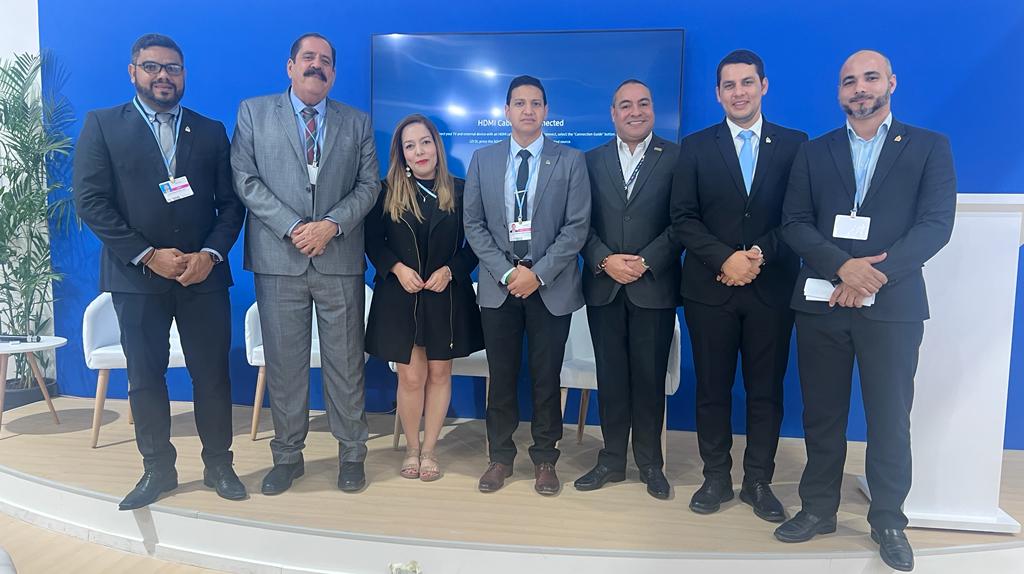
Internally, the communications team promoted or delivered workshops for colleagues to strengthen capacities in communications, covering topics ranging from content optimization, branding, LinkedIn and using mobile devices to capture video and photos in the field, to best practices in external and internal communications. We continued with our monthly newsletter to keep our community informed.
Central America had a high success rate in capitalizing on fundraising opportunities, with the approval of over 75% of proposals. In particular, this included growth of our technical advisory services to sugar mills under PanameriCaña in Mexico and a strategic new alliance with Nestle to scale our regenerative coffee and living income work, also in Mexico. In 2022, we also developed and won new contracts with the Honduras delegation of the European Union (Central America’s first funds with the EU) in a SwissContact-led consortium, where we will drive decarbonization and deforestation-free in the coffee and cocoa sectors, with GIZ Honduras on regenerative coffee and gender, and with the BMZ DeveloPPP initiative (Germany) for regenerative, low-carbon coffee, scaling our partnership with Mercon in Nicaragua.
Following the success of our grant applications to Rabobank to pilot the ACORN initiative in Nicaragua, the Dream Fund Climate Heroes project was also approved in this period, and has served as a launch pad for our work to connect farmers to carbon markets, starting in Nicaragua and expanding to Honduras, and Guatemala (planned for 2023). Unfortunately, we were unsuccessful in two large funding calls on sustainable landscapes and biodiversity, working in consortium with TNC for a large USAID opportunity, and with IUCN for a large UKAID opportunity.
We focused on improving decision-making through the management and analysis of high-quality data. For this, a joint strategy between PMEL & IT areas has been fundamental since it allows the design of digital tools for data collection that are aligned with the goals of the projects and monitoring needs. We co-defined the tools development process and the design of templates for its monitoring.
To date, there are 86 digital surveys developed for different purposes, such as: baseline assessments, monitoring of technical assistance visits, socio-economic surveys, checklists, etc. We have data from 13,350 farmers, 23,846 completed and synchronized surveys and 237 users of digital surveys. The data is managed in our regional data management system JUNGLA, based on Salesforce. We developed 84 dashboards that summarize information from 4,096 descriptive statistics reports, that are used by programme managers, field staff, and our partners. Data coming from palm oil producers in Mexico, Cocoa and livestock producers in Nicaragua, and coffee producers in Nicaragua, Honduras, and Mexico fit into at least 5 network indicators and the producer’s profile.
Our data collection and management model, based on standardized content, linked to the objectives of the projects and the data model of the Network, makes the use of digital tools easily adaptable and replicable and allows us to keep costs low without risking the efficiency of the solutions and the team. This has also resulted in an attractive business model for Solidaridad since we have provided data collection and analysis services for third parties.
No integrity issues were reported in 2022. A new Integrity Advisor was appointed, who received introductory training. Since then, Mesoamerica has been sharing and explaining the code of conduct and the whistleblower protocol with new staff members, focusing on the importance of following procedures.
Finance
Due to new projects obtained during 2022, we witnessed an increase in direct income. This included funders like Beta San Miguel Group (€78K) for the Best agricultural practices certificate of Recognition and BONSUCRO certifications, Rabobank (€62K) for a pilot project to generate carbon certificates through the Acorn platform, and Bayer (€33K) for the renewal of the MAS-CAÑA project.
Income from related Solidaridad organizations also increased and originated mainly from the Dreamfund funding (€172K) by the Dutch Postcode Lottery and funds from the Dutch Ministry of Foreign Affairs (€111K), all provided via the office in Europe.
Because of new projects, related to the additional income, and fluctuations in the USD/Euro exchange rates during the year overall expenses also increased.
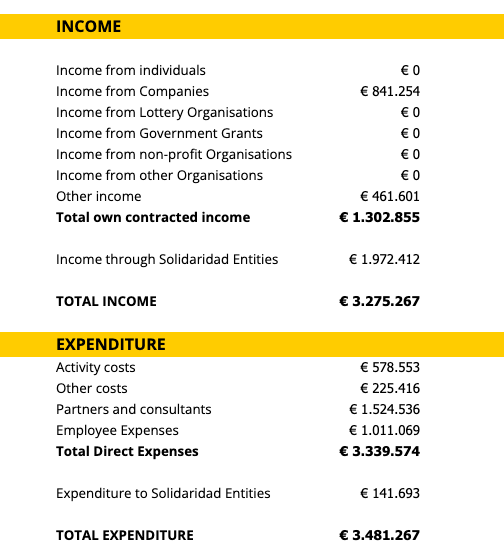
The full audited annual statements are available below.

